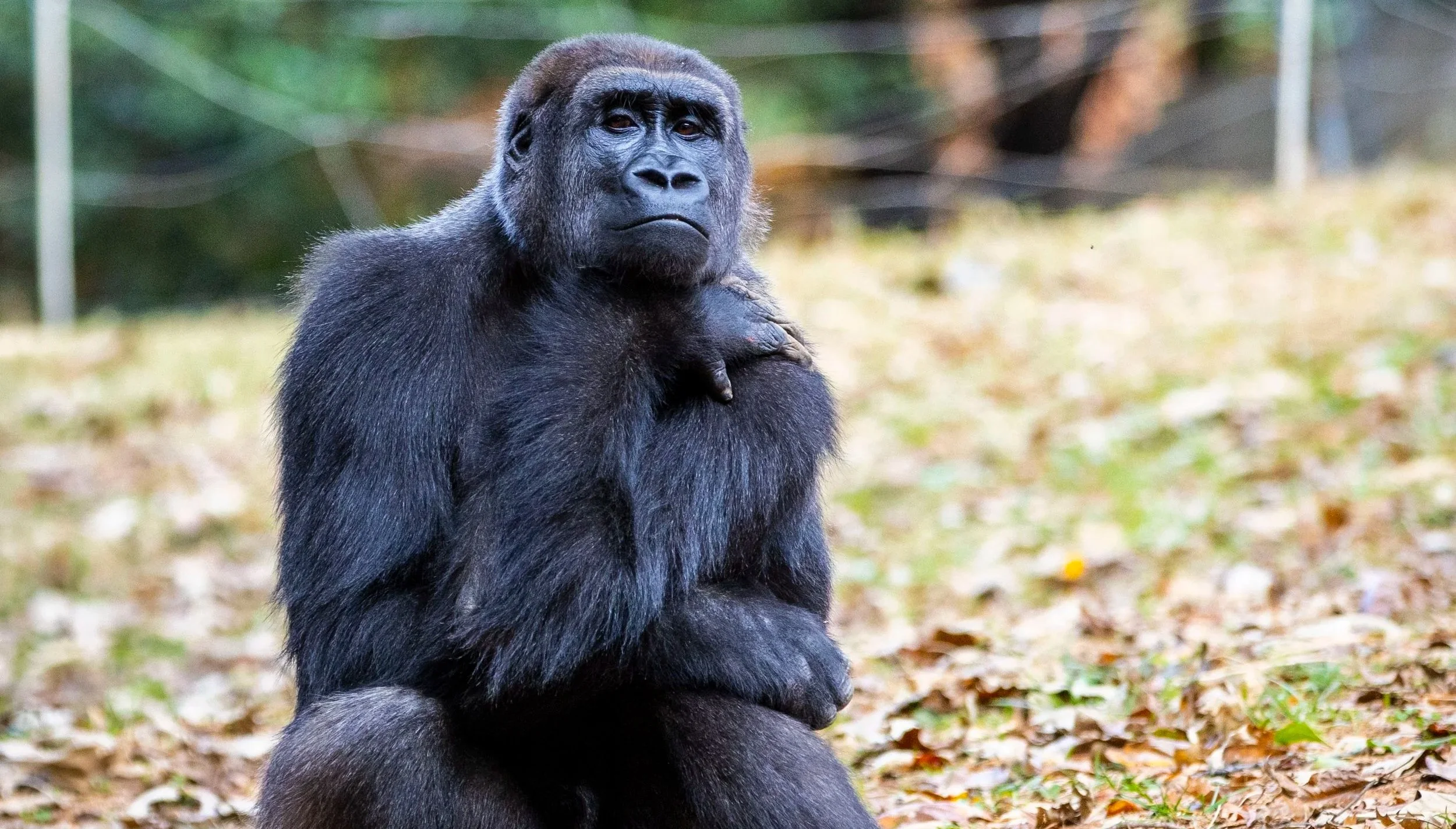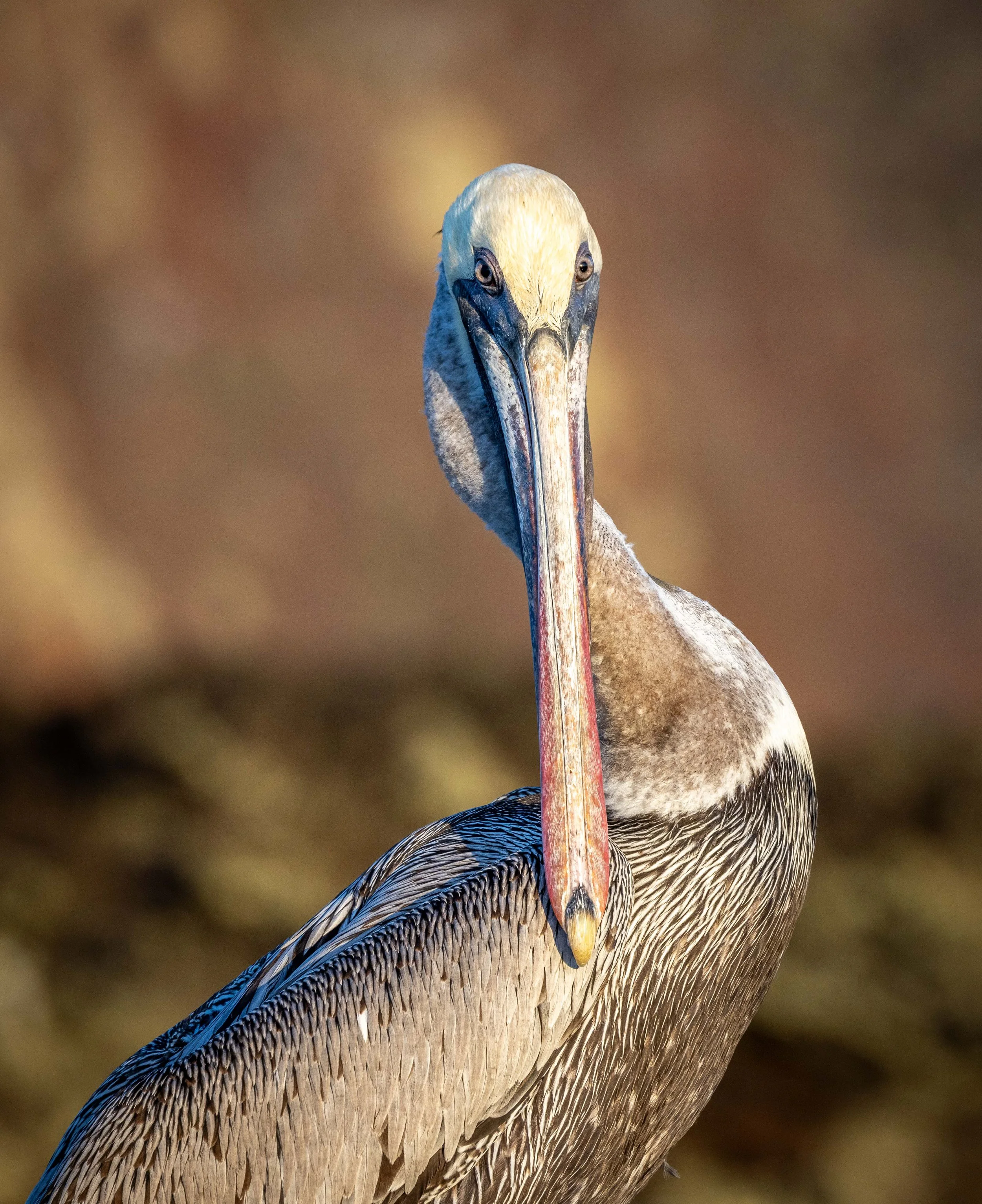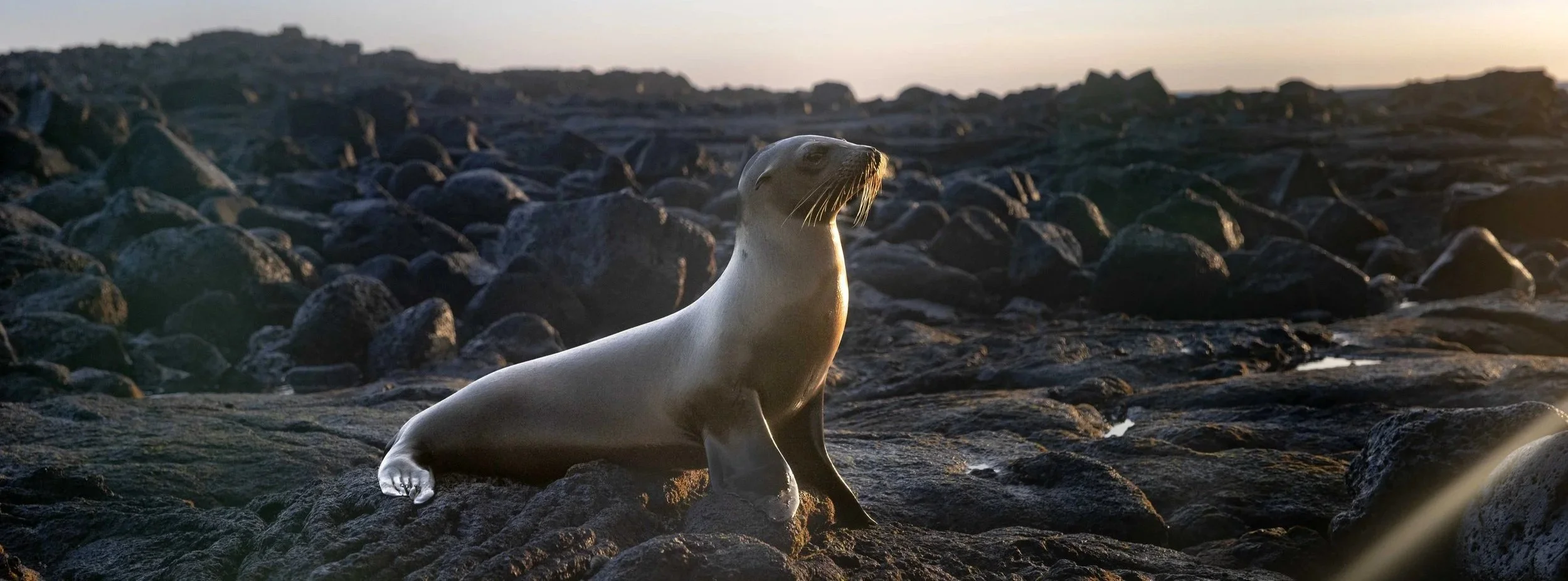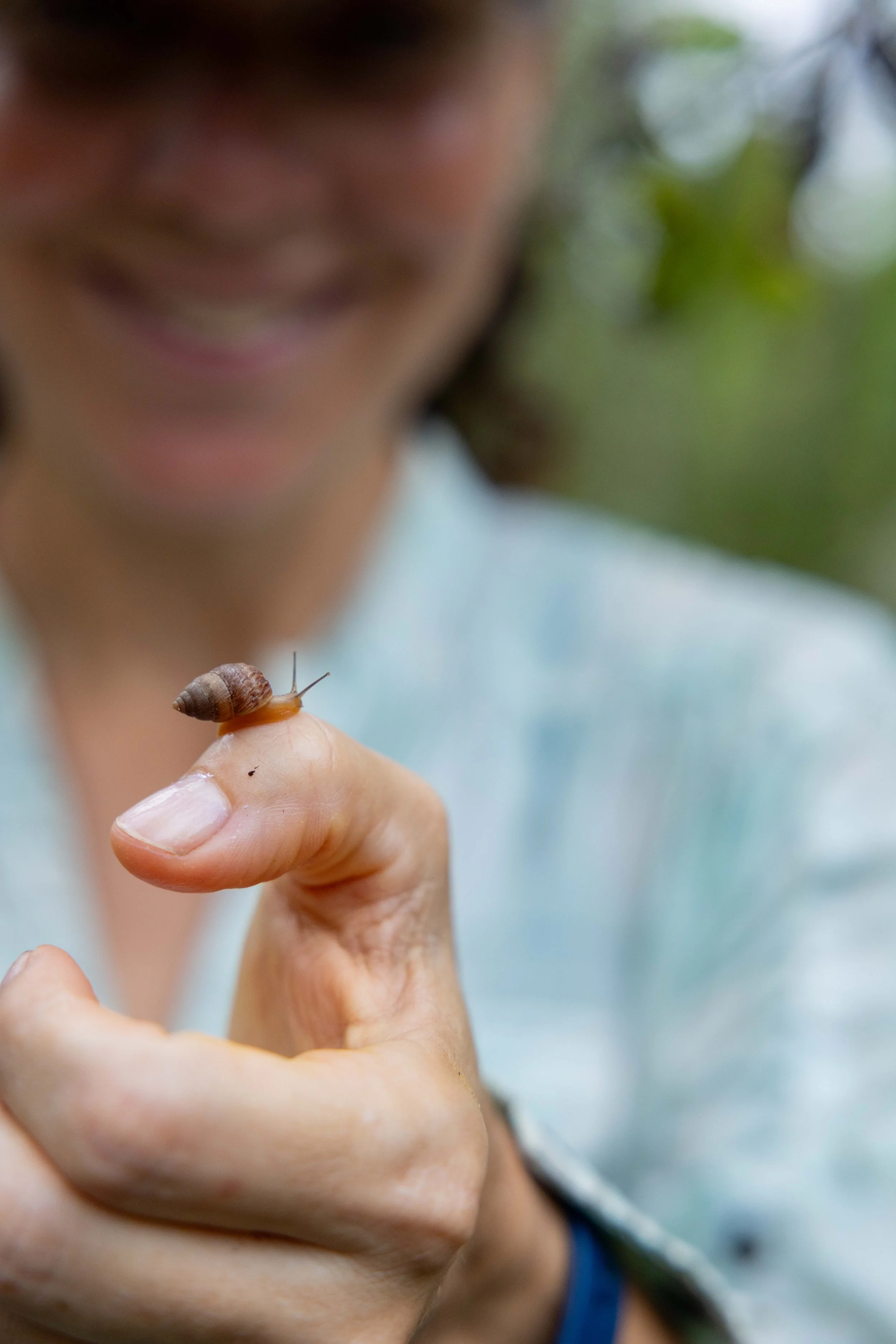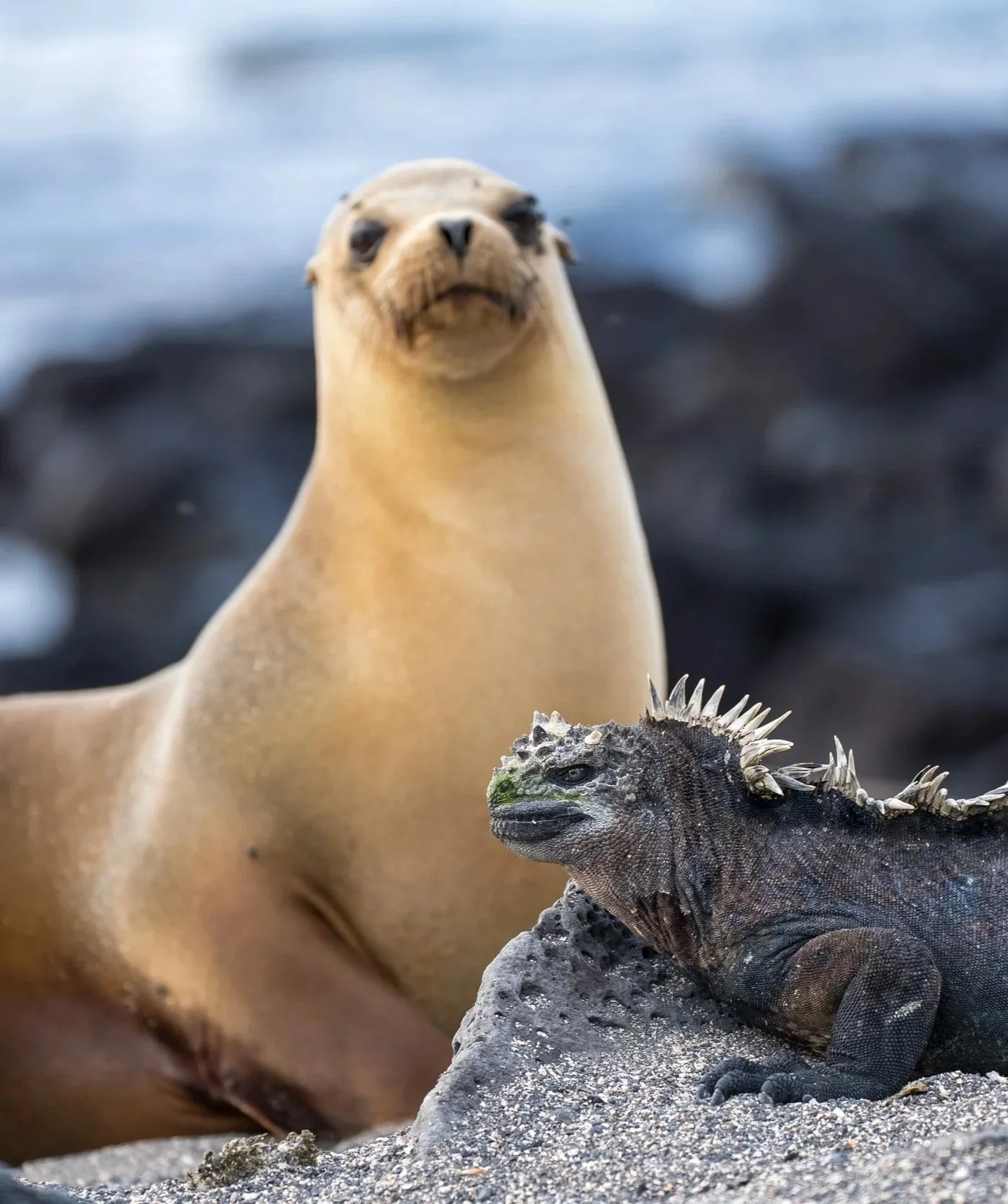The Myth of Human Inevitability and Superiority
The notion that human beings sit proudly at the apex of the evolutionary process does a profound disservice not only to ourselves but the world around us. It is a notion born of religious exceptionalism, biological supremacy and stone cold hubris, and one we must outgrow (evolve?) if we are going to survive the enormous changes that come with exponential population growth and poor leadership.
Personally, I feel pretty far from the apex of evolution, as my body entropies on the threshold of 40, and our species performs worse and worse on the grand stages of history. There is room for improvement.
But let's pretend, for the sake of argument, that human beings are fully evolved—the highest branch on the tree of life, towering over all other living beings on the planet. That suggests there is some sort of blueprint or "perfect organism" that evolutionary biologists could predict, prepare for, or even create... that it doesn't get any better than our wonky hips and vulnerability to viruses... that things can only get worse from here.
Alternatively, let's consider that there is no such thing as evolutionary superiority. Because evolution is not finite, it's not a spectrum, it's more like an atom, with electrons firing here and there, creating the cloud of biodiversity that gives our world texture. In that metaphor, the whole party collapses in on itself if we start placing value judgements on any one creature in the evolutionary cloud.
Consider the sea lion, outperforming humans in the water, or cheetahs, leaving us in the dust on land. Or the humble land snail, surviving 520 million years on this planet amidst extinction events and all manner of adversity: hardships which humans will most certainly prove incapable of surviving when our time comes. Who is more evolved in those scenarios?
Our greatest strength is technology, born of our abnormally large brains, which has given us a leg up on surviving almost any situation, and created the ideological chasm between us and the rest of the world's biodiversity. But make no mistake, left naked in the cold, dry reality of our third rock from the sun, that advantage breaks down pretty quickly.
And so, let's dismantle the linear idea of evolution, where higher and higher functioning creatures unfold in chronological sequence on our centrifugal planet. Let's shake up this simple concept and replace it with something more nuanced, and perhaps less human.
As Stephen Jay Gould put it, "The ‘pageant’ of evolution as a staggeringly improbable series of events, sensible enough in retrospect and subject to rigorous explanation, [is] utterly unpredictable and quite unrepeatable... Wind back the tape of life and the chance becomes vanishingly small that anything like human intelligence would grace the replay."
Thus we should all agree that evolution, while elegant, is subject first and foremost to chaos—the unpredictable cataclysms that shaped our world geologically, biologically and now, technologically. In other words, human beings exist because of these unpredictable and unlikely forks in the road that facilitated our evolution in Earth's most habitable environs. However, given a different set of variables, a different "highly evolved" species certainly would have emerged, perhaps even more capable than we are at survival and stewardship of Earth. In fact, on a long enough timeline, that species already existed, and will again.
These concepts are pretty intro-level for any scientist in the evolutionary field, but it was a novel breakthrough in my understanding of the "Earth story" (aka the human story aka all stories) that came to me while working on Snail Hunters, my new feature natural science documentary currently on the film festival circuit. It's a film about evolutionary study in the Galápagos Islands, where scientists have focused their beam of research not on the iconic and charismatic flora and fauna familiar to all grade school biology students, but on a more unlikely subject: snails.
These scientists from the University of Idaho hope to understand how species coexist by studying relatively young snail species that somehow survive in Galapagos, one of the harshest ecosystems on the planet (and, I can say from experience, not the proverbial "Eden" for which is it often mistaken).
For narrative purposes, I took certain liberties with these ideas in the film, but there were headier and more complex grapplings on the subject that didn't fit in that medium. So I decided to muse a little here...
My breakthrough first came from one of the film's main subjects, Luke Harmon, a macro-evolutionary biologist from the University of Idaho. He turned me onto Gould, and his book Wonderful Life, where he writes poetically on the foolish narcissism of humans, while providing deep-time context for the tiny part we that play in the massive scale of the Earth story.
“The familiar iconographies of evolution are all directed - sometimes crudely, sometimes subtly - toward reinforcing a comfortable view of human inevitability and superiority. [But] life is a copiously branching bush, continually pruned by the grim reaper of extinction, not a ladder of predictable progress.”
The idea that we are seated atop of the tree of life, looking down on all other species, is a convenient excuse for the way we treat the planet and it's trillions of other inhabitants. After all, if we're better and further evolved than anything else, why shouldn't we claim dominion over the crude mistakes of Mother Nature's earlier attempts at perfection, with their own feeble grasp on survival?
Alas, nature is not so anthropomorphic.
Nature is not point A to point B—evolution has no prologue or apex or finish line. It is a fragile, omnipresent process happening at all times, all around us. And it happens fast, guided by the ephemeral conditions of each precious moment, which determine our fate and life as we know it.
But this process goes both ways—humans were shaped, evolutionarily, by the conditions of the world into which we evolved. And as the coin begins to flip, and humans now shape the world around us faster than it is shaping us, we are actually defining our own evolution—our own fate—as we are now forced to evolve into a world more dominated by the fossil fuels and smart phones that we proliferate than the river currents and animal migrations that gave us life in the first place.
Luke Harmon, Ph.D.
In the end, after working on this film and challenging myself to learn more about the science, I find some solace in the brilliant power of one thing: humanity’s most divine and incomparable invention, the scientific process. And like evolution, the scientific process never ends. It is the sum of our best ideas at any given moment, always leaving room for improvement or deviation by future scientists who are willing to get down in the dirt and do the research.
And at this stage in history, with our scientific institutions under unprecedented attacks and the very pursuit of knowledge being stigmatized, it is this scientific process that we must look to. And trust. And empower.
Because as much as we shape the world around us, it shapes us right back. Best that we all consider that as we chart our course further into the evolutionary cloud, and decide whether our success must come at the expense of all other living beings—or because of them.
Swimming with wild sea lions on the shores of Isla Isabela, Galapagos
